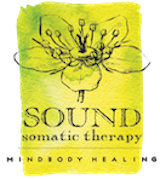Help for Childhood Trauma
Did you experience physical, sexual or emotional abuse as a child?
Did you live in a home with a caretaker who was mentally ill, depressed, anxious or alcoholic?
Were there traumatic events in your family or community during your childhood or before you were born?
Did you have significant illnesses, injuries, accidents or medical procedures when you were growing up?
Looking at a baby or young child, it is easy to see how vulnerable they are. Each one of us was that young and vulnerable once upon a time. When we are children, we don't have a lot of options for responding to dangerous situations and it is especially difficult if the danger or chaos is in our family.
Babies are sensitive and even very small things can have big impacts. Babies don’t have any way to think about what is happening. It is often just an experience of badness that gets taken in as “this is me” in a visceral way. Childhood abuse, neglect and misattunement are usually ongoing as well (not an isolated incident), happening in the very relationships that are supposed to help the baby or child learn safety and trust. This is called developmental trauma, relational trauma or complex PTSD.
When babies are born, their nervous systems are not capable of regulating themselves. They depend on their caretakers to provide regulation. When caretakers are physically or emotionally absent or their own nervous systems are disregulated, the child can grow up with lifelong challenges managing their emotions, being in relationships, and even recognizing their own wants and needs. Research on Adverse Childhood Events (ACEs), has found that such events increase the likelihood of many physical health conditions later in life as well. These impacts can be felt even if we can't remember specific events or think that the event wasn't big enough to be called "trauma."
If you are suffering with symptoms of depression, anxiety, PTSD, or chronic pain or illness and you experienced childhood trauma, abuse, neglect, chaos, unpredictability or loss, you may have symptoms of PTSD, DID, depression, anxiety, chronic pain or chronic illness. You may not be able to trust people, tolerate your feelings or handle conflict or difference in relationship, or you may be very sensitive. It can be a long road, but there is a way to help you function and feel better. A somatic approach is important because early experiences can be non-verbal, experienced only in the realm of sensation and emotion.
I have linked to a couple videos (to the right or below) that show how quickly babies respond to even a brief experience of misattunement. There is also a video of elephants that shows a healthy response to a child when something bad happens.
Contact me today.
Sound Somatic Therapy serves the communities of Olympia, Lacey, Tumwater, Yelm, Rainier, Lakewood, Tenino, Rochester, Shelton, Dupont, Steilacoom and Washington State
